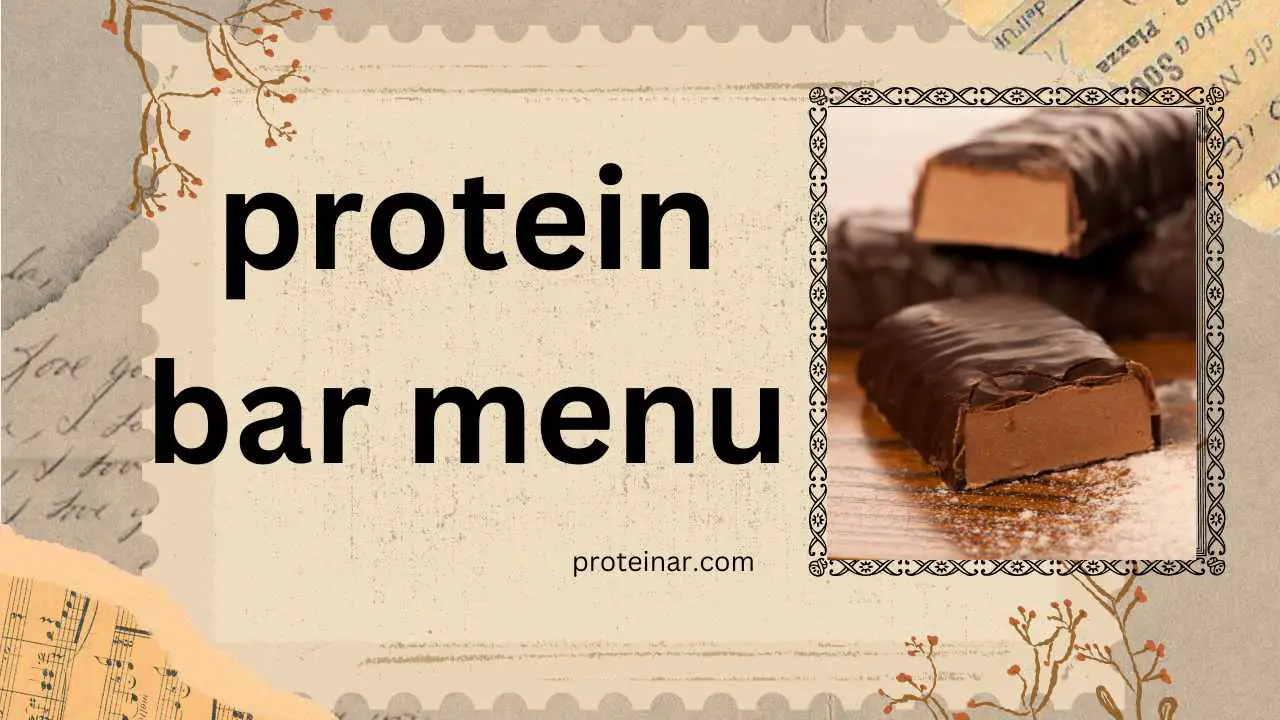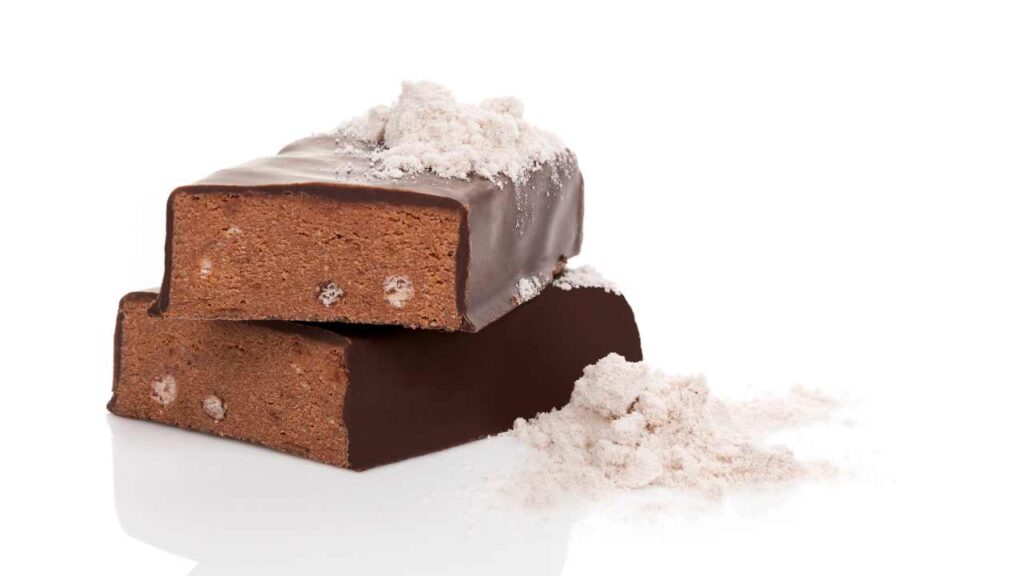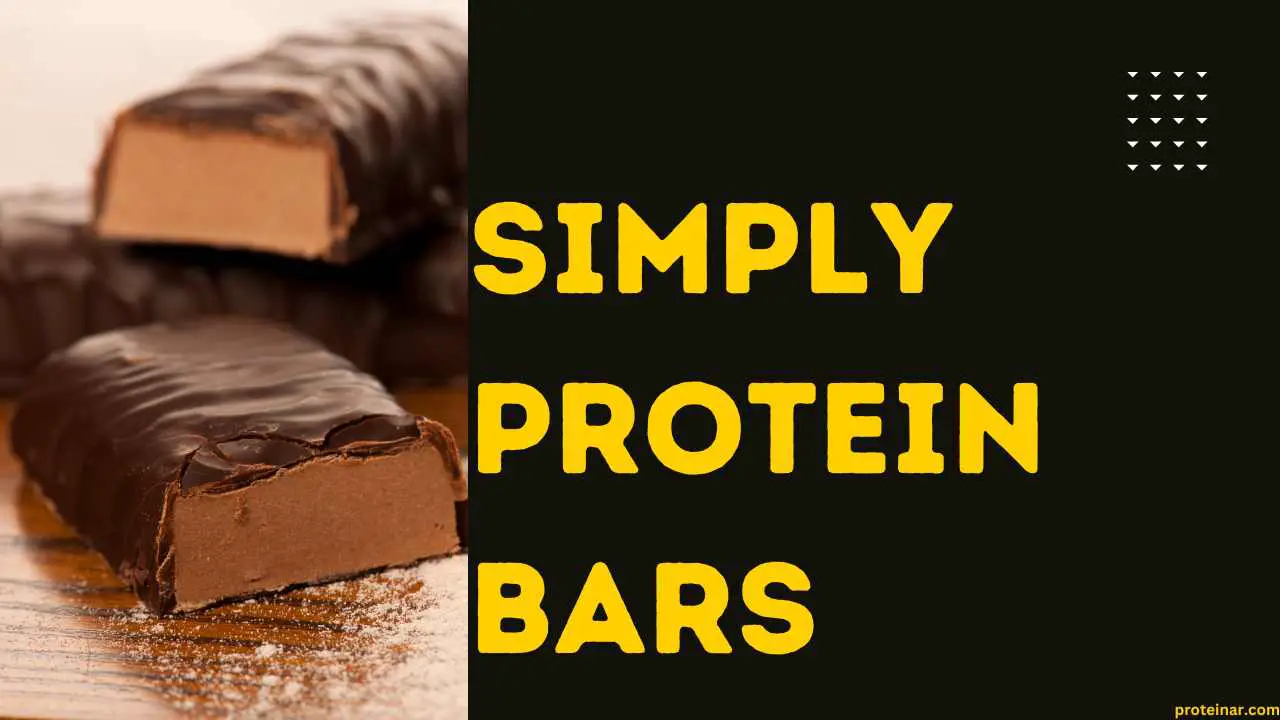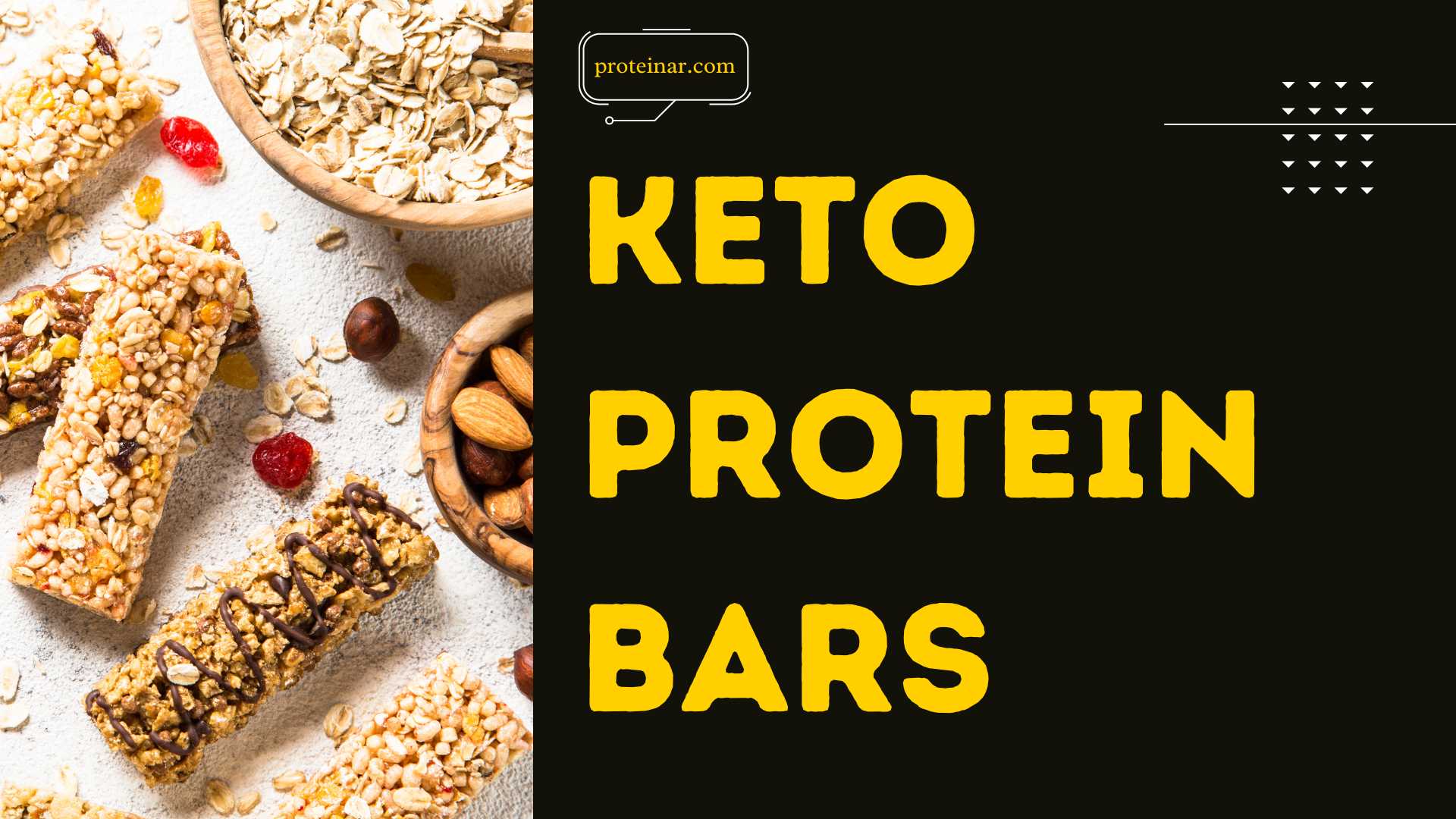Protein Bar Menu: A Complete Best Guide

Explore our protein bar menu and choose from a diverse selection of tasty and protein-packed bars. Fuel your body with the goodness it deserves.
In today’s fast-paced world, maintaining a healthy diet and staying on top of our fitness goals can be daunting, especially for fitness enthusiasts, health-conscious consumers, and on-the-go professionals who constantly juggle time and nutritional needs. Enter the Protein bar menu – not just a quick snack but a growing trend in the health and fitness industry that promises convenience without compromising nutrition.
But what makes protein bars so essential in our daily diet, and how do we choose the right one? This ultimate guide to protein bars will answer all your questions and provide you with all the information you need to know about this power-packed snack.
What is Are Protein bar menu?
Protein bars typically energy-dense, convenient snacks that consist of a higher percentage of protein relative to other macronutrients. You would normally find them in different types of protein sources such as whey, soy, casein and from plant-based sources like pea, brown rice or hemp. Protein bar menu price may also use nuts, seeds, fruits and sweeteners.
There are different types of bars like energy bars, meal replacements and snack foods that also fit into these categories. Beyond fitness and sports circles, they have become a popular snack food for the masses — convenience food that is high in nutrients, too.

Benefits of Protein Bars
A protein bar menu can offer numerous health benefits, making it an ideal choice for those looking to improve their overall well-being. Some of the key benefits include:
- Convenient source of protein: With our busy schedules, it can be challenging to find time for a protein-rich meal. Protein bars offer a quick and easy way to meet your daily protein needs.
- Satisfy hunger: Protein is known for its satiating effect, keeping you full for longer and reducing cravings. Consuming a protein bar can help curb hunger pangs and prevent overeating.
- Aid in muscle growth and recovery: Protein is essential for muscle development, and protein bars are an excellent way to boost your daily protein intake, especially for those who struggle to meet their protein requirements through whole foods.
- Balanced nutrition: Protein bars often contain a mix of macro and micronutrients, making them a well-rounded snack that can contribute to a balanced diet.
- Versatility: With the variety of flavors and types available, protein bars can cater to different dietary restrictions and preferences. They are also convenient for a pre or post-workout snack, as a meal replacement, or even as a healthy dessert option.
Choosing the Right Protein Bar Menu
With countless options available in the market, choosing the right protein bar can be overwhelming. Here are some key factors to consider when selecting a protein bar:
- Protein content: The protein content in a protein bar can range anywhere from 10-30 grams. Consider your daily protein needs and choose a bar with an appropriate amount of protein.
- Ingredients: Look for bars with natural, whole-food ingredients and avoid added sugars or artificial sweeteners.
- Macros: Pay attention to the ratio of carbohydrates, fats, and proteins in the bar. Choose a bar that aligns with your dietary goals and needs.
- Calories: While protein bars are meant to be nutrient-dense, they can also be high in calories. Make sure to check the calorie count and choose a bar that fits into your daily caloric intake.
- Allergens: If you have any allergies or sensitivities, make sure to read the ingredient list carefully and choose bars that are free from those allergens.
- Taste and texture: Ultimately, the taste and texture of a protein bar can make or break your experience. Experiment with different brands to find the one that suits your palate.
Incorporating Protein Bars Into Your Diet
Protein bars can be a convenient addition to your diet in various ways. Here are some ideas on how to incorporate them into your daily routine:
- Pre or post-workout snack: Consuming a protein bar before or after your workout can provide you with the necessary energy and nutrients to fuel your exercise and promote muscle recovery.
- Meal replacement: Protein bars can be a quick and easy option for those busy days when you don’t have time for a proper meal. Make
The Vital Role of Protein in Our Diet
Protein is the building block of life, vital for muscle repair, growth, and maintaining a healthy immune system. Especially for our target audience, ensuring enough protein intake is crucial for post-workout recovery, satiation, and overall health. However, meeting protein requirements can be a challenge amidst busy schedules. This is where protein bars come into play, offering a quick, nutritious solution to keep your protein levels optimal.
Nutritional Benefits of Protein Bars
Protein bars are packed with nutrients, making them more than just a convenient snack. Typically, these bars offer a balanced macronutrient profile – proteins, carbohydrates, and fats – alongside vitamins and minerals to support overall health. Common ingredients include nuts, seeds, oats, whey or plant-based proteins, and sweeteners to enhance flavor. The result? A powerhouse of nutrition that fuels your body and supports your dietary needs.
Exploring the Types of Protein Bars
The market is flooded with countless options catering to various dietary preferences and goals. Here’s a breakdown:
- Plant-Based Protein Bars: Perfect for vegans or those with dairy allergies, these bars are typically made from pea, rice, or hemp proteins.
- Whey Protein Bars: Favoured by athletes for their high-quality protein, these bars are great for muscle recovery.
- Soy Protein Bars: A good alternative for those seeking a balance between plant-based and dairy options.
Choosing the right type depends on your dietary restrictions, preferences, and fitness goals.
Choosing the Best Protein Bar for You
Not all protein bars are created equal. When selecting the best option, consider your dietary needs, the macronutrient balance, and the sugar content. Aim for bars with a considerable amount of protein (at least 10 grams), low sugar, and wholesome ingredients. Remember, a protein bar should supplement your diet, not replace whole foods.
DIY Protein Bar Recipes
For those who prefer homemade options to avoid added sugars and preservatives, making protein bars at home can be an enjoyable and rewarding process. This section of our guide provides simple, customizable recipes that cater to different tastes and dietary needs, offering a fun way to get your protein fix.
Reading and Understanding Protein Bar Labels
Navigating the world of protein bars requires some savvy label-reading skills. Pay attention to the protein source, calorie count, sugar content, and the list of ingredients. Opt for bars with natural sweeteners and minimal additives to ensure you’re consuming a healthy snack.
Incorporating Protein Bars into Your Daily Routine
Protein bars can be a great addition to your diet when used wisely. They work well as a post-workout snack to aid recovery, a mid-day pick-me-up, or a convenient breakfast on the go. However, it’s important to balance your intake of protein bars with whole foods to ensure a varied and balanced diet.
Common Mistakes to Avoid When Choosing Protein Bar Menu
While protein bars can be a valuable addition to your diet, there are common pitfalls to avoid in order to make the most of their benefits. First, steer clear of bars with high sugar content, which can negate the health benefits of the protein. Similarly, beware of bars that contain excessive amounts of artificial sweeteners or ingredients, as these can be detrimental to your health over time.
Additionally, don’t rely solely on protein bars for your protein intake; they should complement, not replace, the protein you get from whole food sources. Lastly, it’s important to consider your own dietary restrictions and preferences—what works for one person may not work for another. By paying attention to these details, you can ensure that you’re choosing the best protein bar to suit your needs and support your health goals.
Frequently Asked Questions (FAQs)
How Much Protein Do I Really Need?
The amount of protein you need depends on various factors, including your age, gender, weight, and activity level. On average, adults should aim for 0.8 grams of protein per kilogram of body weight per day. For those who are more active or trying to build muscle, the requirement can increase to 1.2 to 2.0 grams per kilogram of body weight per day.
Can Protein Bars Replace Meals?
While protein bars can serve as a convenient meal replacement in a pinch, they should not be relied upon as a regular substitute for whole foods. Whole foods provide essential nutrients, dietary fibre, and antioxidants that protein bars may lack. If you choose to use a protein bar as a meal replacement, opt for one that is balanced in macronutrients and low in sugar.
Are Protein Bars Good for Weight Loss?
Protein bars can be a tool in your weight loss arsenal due to their ability to provide a satiating snack that’s convenient and portion-controlled. However, the key to weight loss is consuming fewer calories than you burn, so make sure the protein bars fit within your daily calorie goals. Look for bars high in protein and fibre but low in sugar and calories.
Can I Eat a Protein Bar Every Day?
Yes, you can eat a protein bar every day as part of a balanced diet. However, it’s important to vary your protein sources to ensure you’re getting a wide range of nutrients. Relying too heavily on protein bars can lead to nutritional deficiencies over time.
Are There Any Side Effects to Eating Protein Bars?
Eating protein bars in moderation is generally safe for most people. However, consuming too many protein bars, especially those high in sugar or artificial ingredients, can lead to digestive issues, weight gain, and other health problems. It’s also important for individuals with allergies to read ingredient labels carefully to avoid allergic reactions.
How Do I Choose a Healthy Protein Bar?
Look for protein bars with a short list of recognizable ingredients. Aim for bars that offer at least 10 grams of protein, are low in sugar (less than 10 grams), are high in fiber, and include healthy fats. Avoid bars with artificial sweeteners, colors, or preservatives whenever possible.
Can Vegans Find Suitable Protein Bars?
Absolutely! The market offers a wide range of plant-based protein bars made from ingredients like pea protein, rice protein, hemp protein, and nuts. These vegan options provide high-quality protein without any animal products.
Conclusion of the Protein bar menu
The protein bar menu offers a convenient, nutrition-packed option for those looking to support their fitness goals and maintain a healthy diet amid a busy lifestyle. By understanding the different types available, knowing how to select the best bar for your needs, and learning how to incorporate them into your routine wisely, protein bars can indeed become your partner in fitness and wellness. Whether you’re a seasoned gym-goer, a health-conscious eater, or a professional always on the move, the right protein bar is out there, ready to support your health journey.





